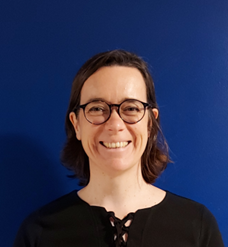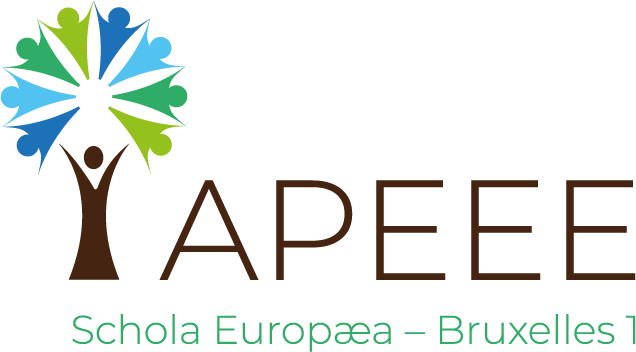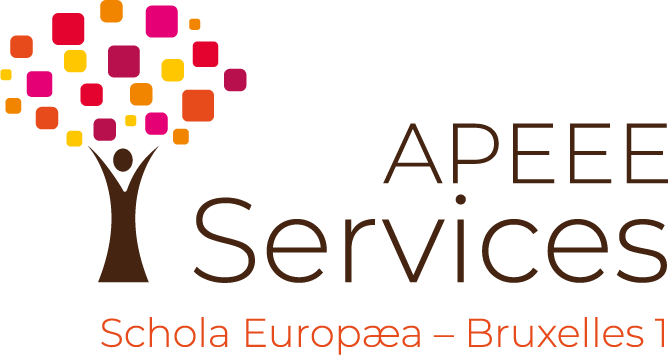Pedagogical Working Group (PedGroup)
Coordinator: Noémie BEIGBEDER
Contact: vp_secondary-uccle@apeee-eeb1.org or pedgroup@apeee-eeb1.org
 |
| Noémie BEIGBEDER |
The Pedagogical Working Group (PedGroup) works with the APEEE and the school to ensure the quality of the educational offer and to promote measures or initiatives that improve the daily classroom experience of our children, and also their longer educational prospects. The PedGroup aims to promote a close working relationship between parents, students, teachers, management, and the wider school community on issues of pedagogical importance.
General Scope of Activities
The group's target audience is the APEEE and the parents. The PedGroup provides analysis and consultation on pedagogical issues for the APEEE Board (CA) and Education Councils (CEs), responding directly to parent concerns on topics within its mandate. It also consults and advises the INTERPARENTS representatives on pedagogical issues raised at system level. It currently functions as an umbrella group for several issue-driven subgroups and dossiers:
- SubGroup: Languages
- SubGroup: INTERPARENTS - IP (see also: INTERPARENTS and the European Schools)
- SubGroup: Primary Trips
- SubGroup: Secondary Trips, Projects & Project Weeks
- SubGroup: Educational Support - EdSupp (see also: Parent Network for Educational Support)
- SubGroup: Gifted Children Network (GCN) (see also:
- SubGroup: STEM - Science, Technology, Engineering, Mathematics
Topics treated have included:
- Baccalaureate, Evaluation, Orientation
- Quality Assurance
- Digital Learning & Educational Technology
- Art & Music
- Sport
- Human Sciences
- European School Language Policy and bilingual L2 classes
- New Secondary marking system
- Distance teaching and learning
- The school specific Guidelines on Educational Support
- Cost Sharing and recruitment and evaluation of locally hired teachers
- “180 Days” of schooling
- Increased synergies between curricular and extra-curricular music and science programmes
- Secondary teacher replacement
- P5-S1 transition
- European Baccalaureate parents' complaint system
- “White Baccalaureate” student Bac oral training period
- Use of Fabrication Laboratory (FabLab) in the curriculum
- Improved communication on and participation in European Schools Programmes – Eurosport, Festival of Arts and Music of the European Schools (FAMES) and European Schools Science Symposium (ESSS)
PedGroup sport, music and STEM leads also participated in the organisation of the May 2018 60th Anniversary School Fête.
Participation and Working Methods
The PedGroup is open to Board Members and committed parents who have a strong interest the pedagogical programme in place at the school. Members may choose to work on a range of topics or focus closely on a specific dossier. All parent Section Representatives of the Primary and Secondary Education Councils (CEs) are likewise encouraged to take part in the PedGroup.
The PedGroup aims at meeting four or five times each year to hear reports from subgroup coordinators, task leaders and Educational Council representatives, to agree on proposed measures and to discuss future strategy. Otherwise, each subgroup and dossier has its own coordinator or lead and its working method is set to best fit the demands of the dossier and the group members. Exchanges can take place also in written.
The PedGroup receives reports from CE representatives, provides consultation support to them and also hosts preparation meetings before each CE. It presents position papers to the Board, and may also oversee task forces created by the board to address specific topics. PedGroup coordinators or leads may likewise participate in bilateral meetings with the school administration in pursuit of the PedGroup mandate. Finally, the PedGroup issues non-binding opinions on requests for funding of projects within its scope. Members may likewise draft content for APEEE publications and communications. The group reports to the Board at least twice each year.
If you are interested in one or more of these activities, please contact our Secretariat at: info@apeee-eeb1.org
![]() Mandate of the APEEE's Pedagogical Working Group (January 2023)
Mandate of the APEEE's Pedagogical Working Group (January 2023)
See related issues and positions: Pedagogical Continuity and Distance Learning, L2 Bilingual Classes, Projects, Trips and Project Weeks, 180 Working Days for Pupils, Replacement of Teachers and Mobile Phone Policy
See also: Devices for eLearning - BYOD
2023 Priorities
In 2023, the group will continue our work on several dossiers:
- Implementation of the recommendations of the May 2018 EEBI Whole School Inspection (WSI) team: follow up on the eight identified weak areas with low performance scores:
- management ensures effective use of teaching time, including replacements
- education for sustainable development is fostered
- there is continuity and progression from year to year
- the planning within and across sections is harmonised
- individual needs of pupils are respected in planning
- teachers respect pupils’ individual needs in their teaching
- pupils develop the ability to assess their own work
- a structure for quality assurance and development is implemented.
- Consultation of stakeholders: maintain the key role of Education Councils (CE) as a forum for consultation, strategic thinking and shared vision on a range of educational topics.
- Educational support and gifted children networks: ensure that parents are informed on educational policy and work with school to further improve educational support provision.
- Oversee implementation of the European School Language Policy: ensure the provision of language teaching for a range of learners, in particular bilingual pupils.
- Clear communication of course objectives and pupil results: seek to regularise distribution of course programmes, assignments and student results to parents and pupils through well-defined channels.
- Implementation of the New Marking System: monitor implementation of the new system in the Baccalaureate cycle and pupil results at EEBI (compared with baseline) and closely follow the release of national equivalence formulas updated to reflect the new system.
- School timetable and free hours: assure that timetables are feasible, equitable and balanced and that free hours are organised in the best interest of the pupils.
- Use of teaching time: follow the implementation of the 180-day European School calendar and address the problem of non-replaced absences and lost teaching hours.
- Baccalaureate cycle and career orientation: ensure that the arrangements for the PreBac and Baccaleaurate Exams meet system requirements, that results are transparently reported, and that students are well prepared for the next step in their education.
- Digital teaching and learning: work with the school to facilitate the transition from distance to digital and blended learning, specifically by pursuing clear policies on the use of educational communication platforms and educational devices, flesh out BYOD programme, to encourage the appropriate use of digital technologies in the classroom, and to train pupils on the safe and appropriate use of educational technologies.
- Exploit synergies between curricular and extra-curricular programmes: explore possibilities to develop Music & Art, STEM, Humanities and Social Sciences, and Sport and to develop opportunities for project-based interdisciplinary work and other on-site pedagogical activities, especially during Project Week organised in Secondary cycle.
- School trips: to follow the development of the various trips in light of increasing prices and ensure that trips remain viable over the longer term.
- Promote involvement in the European Schools Programmes, including Eurosport, Festival of Arts and Music of the European Schools (FAMES), European Schools Science Symposium (ESSS), Model United Nations/Model European Council (MUN/MEC), Primary European School writing festival.
Last update: 27/01/2026



